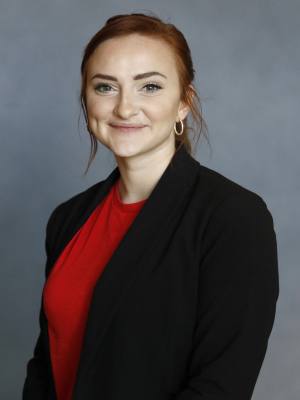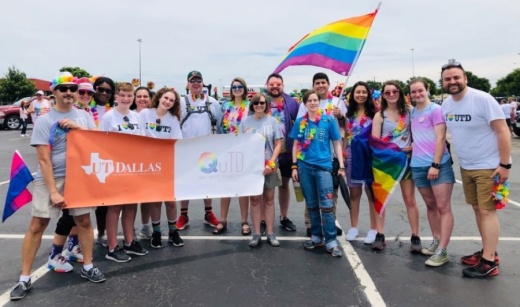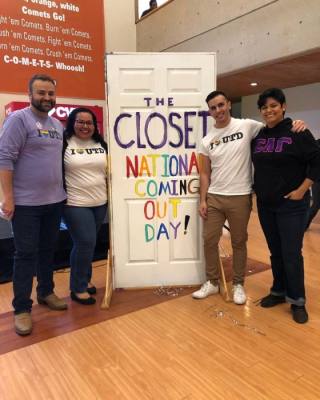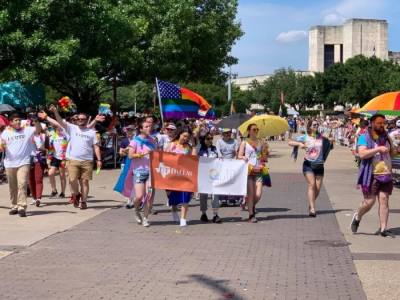“All schools really are trying to set you up to prepare to succeed in life, and you can't really do that if you're not being completely yourself,” Saucedo said.
UT Dallas was recently named one of the top colleges in the country for LGBTQ+ students, according to a June 17 press release. It ranked 14th in the nation by Best Colleges in partnership with Campus Pride and is the only university in Texas to make the top 25. UT Dallas also boasts a five-star rating from Campus Pride for its commitment to LGBTQ+ inclusive policies, programs and practices, according to the release.
Saucedo, who identifies as queer and prefers the gender-neutral pronouns of “they, them and their,” said UT Dallas’ Galerstein Gender Center provides a framework for success for people of all identities.
“[Representation is] very powerful because people start to recognize things in the world and about themselves that possibly would have never come to mind, whether that's like intentional or not,” Saucedo said.
The center fosters a safe and inclusive environment by advocating for gender equity and diversity through leadership development, education, programs and services, according to its website.
The university is committed to not only supporting its LGBTQ+ students but also making sure their presence is well established in the community, said Matt Winser-Johns, the university’s assistant director of LGBTQ+ programs.
“We wanted to not only voice support for LGBTQ+ community but to make [the community] very visible,” said Winser-Johns, who identifies as queer.
One of the center’s largest events is on National Coming Out Day in the fall. Students are able to share their coming out stories in person or anonymously, Winser-Johns said. The event is inclusive of all students and attracts people of all identities, he said.
“Year after year, I am constantly just so amazed about how affirming our students are,” Winser-Johns said. “I watch students sit and listen, and I don't know how they identify, but they are listening.”
The center also holds a Lavender Graduation, which is an additional ceremony meant to recognize the accomplishments of LGBTQ+ students, Winser-Johns said. The graduation allows students to celebrate with their chosen family and partners, some of whom are not accepted by their biological families, Winser-Johns said.
“It gives them an opportunity to celebrate graduation with everybody involved in a safe way,” he said.
Saucedo, a Lavender Graduation alum, said this event was the most meaningful to them.
“Just by hearing about other people's accomplishments, I felt so connected to these other people who are graduating who I had never met before,” Saucedo said.
One of the center’s priorities is education, Winser-Johns said. The Q-Teas program is a designated space for discussing queer-related topics, including online dating and being a LGBTQ+ parent. Safe Zone Ally Training educates students, staff and faculty members on how to support members of the LGBTQ+ community.
“We know that education is the key to everything we do,” Winser-Johns said. “A lot of people don't know a lot about the LGBTQ+ community ... [There] may be some things people are afraid to ask and [we want them] to know that we are approachable people and that we deserve equality as well.”
Many people may be unaware of the harm they inflict on people in the LGBTQ+ community, Winser-Johns said. One of the center’s goals is to prevent those microaggressions.
“Sometimes it's unintentional, and we want people to know that,” he said. “We have got to be forward-thinking and inclusive in our practices.”
Programs at the center are welcoming to non-LGBTQ+ students as well, Winser-Johns said.
“[The programs] create an even more inclusive environment where it doesn't single out a particular group of people,” he said.
To learn more about the university's LGBTQ+ programs, visit this link.







